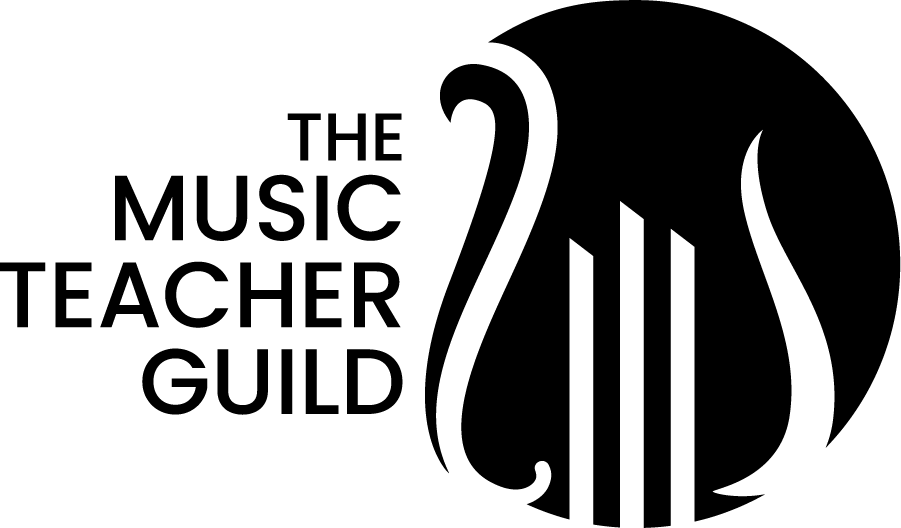5 Ways Peer Coaching Can Transform Your Music Program
Imagine walking into your music class with a renewed sense of confidence—knowing you’ve just spent time collaborating with a trusted colleague who’s helped you fine-tune your lesson plan, classroom management strategy, and even your performance prep. This is the transformative power of peer coaching, and it's gaining traction as one of the most effective ways for music educators to improve their programs. Whether you're a seasoned conductor or a first-year teacher, having a peer by your side can make all the difference. In this article, we’ll explore five ways peer coaching can elevate your music program and why it’s worth considering, especially through a formal mentorship program like the one offered by the Music Teacher Guild.
1. Classroom Management Support
For music teachers, managing a classroom of energetic students, particularly when instruments are involved, is no small task. Peer coaching can offer practical strategies to improve your classroom management, whether it’s dealing with distractions, guiding rehearsals effectively, or simply ensuring all students stay engaged.
Through peer coaching, you can observe a colleague’s teaching methods or invite them to observe yours. This shared experience often uncovers simple adjustments that can make a huge impact—like reorganizing seating arrangements for better acoustics or using hand signals to direct attention during a lesson. In a peer coaching relationship, teachers work together to problem-solve and implement tried-and-tested solutions that might not be part of traditional teacher training.
Imagine you’re struggling to keep your students focused during rehearsal. A peer coach might suggest new techniques for transitioning between activities, or introduce routines that ensure smoother instrument handling. These small changes can save time and reduce stress, allowing you to focus more on teaching and less on managing distractions.
2. Fresh Teaching Methods and Ideas
Peer coaching is a fantastic way to rejuvenate your teaching style. After years in the classroom, it’s easy to get stuck in a routine, repeating the same lesson plans or teaching methods. While consistency has its benefits, students thrive on fresh ideas and approaches. By collaborating with a peer, you can exchange new teaching techniques, learning activities, and strategies for engaging students.
For example, you might learn about creative ways to integrate technology into your lessons, such as using apps to assess student progress or utilizing digital tools to simulate instruments that your school doesn’t have. Your peer coach could also introduce new music genres or composers to explore, broadening both your and your students' musical horizons.
These exchanges often lead to lightbulb moments that invigorate your lesson planning and excite your students. You’ll not only be teaching them music but modeling lifelong learning—an invaluable lesson in itself.
3. Improving Performance Preparation
One of the most stressful parts of being a music teacher is preparing for performances. Whether it’s a school concert, a regional competition, or a community event, the pressure can be intense. Peer coaching can alleviate some of that stress by giving you a sounding board for your ideas and a fresh set of ears to listen critically to your group’s performance.
Your peer coach can offer advice on repertoire selection, rehearsal schedules, and even technical aspects like tuning or balance within the ensemble. They might also provide tips for handling performance anxiety, both for yourself and your students. Additionally, having another experienced teacher to review your ensemble’s performance before the big day can provide invaluable insights—ensuring that no detail is overlooked.
Picture preparing your school orchestra for an important concert. You’ve been rehearsing for weeks, but something still doesn’t feel right. A peer coach can step in, listen to your ensemble, and perhaps identify an imbalance in the strings or suggest breaking the piece into smaller sections for more focused rehearsals. These fresh perspectives can be the key to elevating your ensemble’s performance from good to outstanding.
4. Personal and Professional Growth
At its core, peer coaching is not just about improving your teaching—it’s about personal and professional growth. When you engage in a coaching relationship, you’re investing in your own development as much as your students’. Coaching encourages reflection on your teaching practices and provides opportunities for you to step outside your comfort zone and try new things.
Moreover, peer coaching can help you build confidence. Sometimes all it takes is a colleague’s validation to feel reassured in your abilities as an educator. Conversely, constructive feedback from a trusted peer can push you to refine your approach and become an even better teacher.
Participating in peer coaching also strengthens your emotional resilience. Music education can be isolating at times, especially when you’re the only music teacher in your school. Having a peer coach gives you a built-in support system—a fellow educator who understands the unique challenges of your role and can offer advice, empathy, and encouragement when needed.
5. Strengthening Collaboration and Communication Skills
Collaboration is key in any successful music program, and peer coaching inherently strengthens these skills. Working with a peer coach fosters a culture of open communication, where feedback flows freely and ideas are exchanged without judgment. These skills naturally extend beyond the coaching relationship and into your interactions with students, parents, and other faculty members.
Peer coaching also teaches you how to receive and give constructive feedback. Many teachers, especially newer ones, might shy away from offering critiques to colleagues. However, in a peer coaching setting, feedback is part of the process and is always framed positively, making it easier to embrace. These communication skills become essential when working with other teachers, organizing music events, or liaising with administration.
Introducing the Music Teacher Guild Mentorship Program
If the idea of peer coaching sounds intriguing, but you’re not sure where to start, the Music Teacher Guild Mentorship Program is a fantastic option. Designed specifically for music educators, this program connects you with experienced mentors who offer personalized coaching tailored to your specific needs and goals. Whether you’re looking for guidance on classroom management, performance preparation, or professional growth, MTG’s mentors provide invaluable insights to help you transform your music program.
Through the mentorship program, you’ll have access to a wealth of experience and resources. This formalized structure ensures that you’re paired with a mentor who has expertise in the areas where you need support the most. It’s an investment not just in your program, but in your long-term success as a music educator.
Conclusion
Peer coaching offers a multitude of benefits for music teachers, from improving classroom management to enhancing performance prep and fostering professional growth. If you’re ready to take your teaching to the next level, join the Music Teacher Guild and find a mentor with us. With expert guidance and a collaborative approach, you’ll not only elevate your own skills but also create a more dynamic and successful music program for your students.

